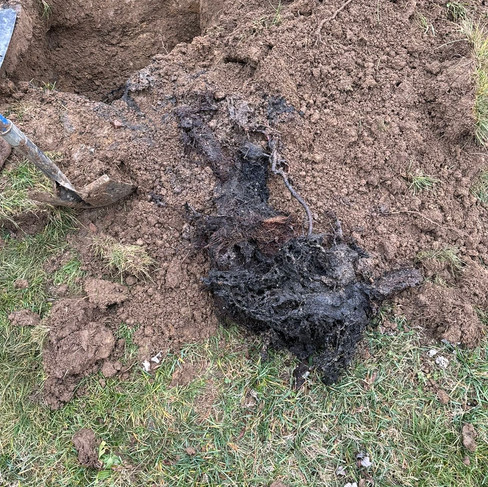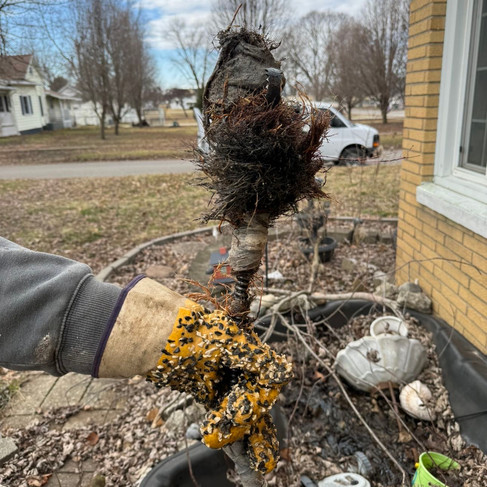When is the Best Time to Schedule Routine Maintenance for Your Sewer/Septic System?
- Madey Cook
- Nov 14, 2024
- 4 min read
Updated: Nov 15, 2024
Maintaining a sewer or septic system is something many homeowners overlook until a major problem happens. But waiting until a crisis happens can lead to unexpected costs and significant stress. In fact, research shows that about 75% of septic system failures are due to improper maintenance. Regular upkeep not only saves you money but also ensures the system’s long-term functionality. In this blog post, we will discuss the ideal times for scheduling routine maintenance, its benefits, and how to keep your sewer or septic system running smoothly.
The Importance of Routine Maintenance
Routine maintenance is vital for the longevity of your sewer and septic system. Think of it like a regular check-up for your home’s plumbing. Just as annual medical exams help to detect issues early, consistent inspections of your sewer system can prevent small problems from turning into costly repairs.
For instance, keeping sewer lines free of debris and tree roots can prevent blockages that lead to messy backups. Recent studies indicate that unattended blockages can cost an average of $1,500 to $5,000 in emergency repairs. By opting for routine maintenance, you take proactive measures that give you peace of mind, knowing that your system is operating as it should.
Optimal Times for Scheduling Maintenance
So, when should you schedule maintenance? There are specific times throughout the year that are particularly advantageous to address your sewer or septic system care.
Before Seasonal Changes
Scheduling maintenance before major seasonal changes, especially in spring and fall, is highly recommended. During these seasons, weather shifts can affect the health of your sewer and septic systems significantly.
For example, spring rains can lead to saturated ground that may overwhelm a septic system. In fact, homes located in flood-prone areas could see up to a 50% increase in system strain due to heavy rainfall. Conversely, during fall, falling leaves can obstruct sewer lines if not addressed in a timely manner. Scheduling maintenance in early spring or right before autumn can help catch these potential problems before they escalate.
After Major Weather Events
If your area has recently gone through severe weather, like heavy rain or a storm, an inspection is a smart move. Flooding can introduce groundwater contamination, adversely affecting your septic tank and surrounding area. A check-up following such events can identify problems that may have arisen from excess water exposure, potentially saving you from more significant issues down the road.
Upon Moving In
For new homeowners, a call to a sewer maintenance specialist should be among your first priorities. Understanding the condition of your sewer system is critical to avoiding future headaches. An expert inspection will provide insights into what immediate tasks need completion and what long-term maintenance plans you should consider.
The Benefits of Routine Maintenance
Investing in regular maintenance not only boosts the efficiency of your system but also saves you money over time. Here’s how:
Cost Savings
Emergency repairs can be 3 to 4 times more expensive than scheduled maintenance. By addressing issues regularly, you can solve minor problems before they evolve into costly disasters. A simple inspection can often cost around $100 to $300, while emergency repairs can run into thousands.
Environmental Protection
Sewer and septic problems don't just affect your home—they can also lead to broader environmental issues, such as contaminating local water supplies. Studies indicate that properly maintained systems significantly reduce the risk of environmental contamination, helping to protect both your home and your community.
Peace of Mind
Having your sewer and septic systems checked regularly gives you reassurance. Knowing your systems have been inspected and are working correctly frees you from the constant worry of sudden plumbing emergencies.
What to Expect During a Routine Maintenance Visit
When you schedule a maintenance appointment, knowing what to expect can help you prepare effectively.
Inspection of All Components
During the maintenance visit, technicians will examine the entire system, including septic tanks, drain fields, and sewage lines. They will look for any blockages, leaks, or signs of wear that may require attention.
Cleaning Services
Incorporated in many routine maintenance plans is thorough cleaning of lines and tanks. This cleaning helps remove debris and roots, ensuring that the system operates smoothly. For example, a typical cleaning can clear out up to 90% of possible blockages, drastically improving efficiency.
Documentation and Recommendations
After the inspection, you’ll receive a detailed report on the condition of your sewer system and any suggested actions. Keeping a maintenance log can help you monitor your system's health over time.
How to Prepare for Your Maintenance Appointment
Preparation can make the maintenance appointment smoother and more effective. Here are essential tips:
Access: Make sure the technician can easily reach your septic tank or sewer lines. Clearing any obstructions will save time.
Information: Have relevant information about past maintenance or any known issues ready for the technician. This will assist them in providing the best service.
Expect Questions: Come prepared to answer questions regarding your system's performance, along with any problems you might have experienced recently.
Final Thoughts
By scheduling routine maintenance, you not only avoid potentially costly repairs but also enhance the lifespan of your system. Timing your maintenance is essential, especially during seasonal changes and after extreme weather events.
Take action now to prevent future emergencies. Schedule your maintenance appointment today, and promote a healthier environment for both your home and your community. Your peace of mind and wallet will surely stand to benefit!





Comments